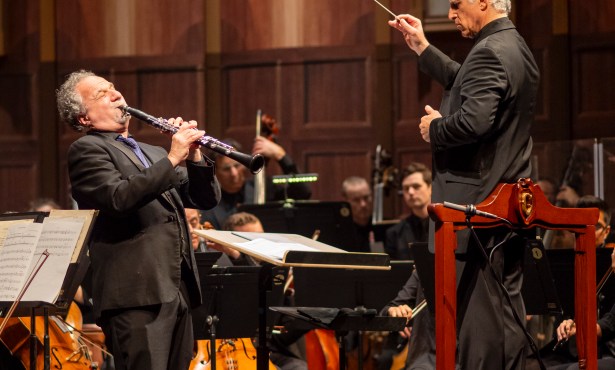‘The Americans’
Why This Show Has Us Rooting for the Wrong People

One of the most thrilling aspects of our current television renaissance is antihero worship. And since The Sopranos, there hasn’t been a better gang of ironic protagonists than the characters in The Americans. Like Mad Men, The Americans is a stylish period piece but set in 1980s Washington, D.C., with film, music, and clothes references galore. But the show, now it its fourth season, doesn’t bathe in it; time after time, plot explosions threaten to consume the whole series, and then it veers away just in time to give us more pleasurable glimpses of the amazing cast of characters as they undermine our beloved Imperialist lackey-dog culture. Hitchcock would love The Americans.
If you tortured me or used a foolproof lie-detecting device, I could not tell you truthfully which of the primary women in The Americans fascinates me most. Longstanding crush aside, Keri Russell’s Elizabeth Jennings, the female side of a Soviet mole couple (called illegals here), is brilliant with a face that halfway masks emotions, is sweet, reflects steely hatred, and at other times perfectly showcases the narcissism inherent in “professional” behavior. Spying supplies the best metaphor for ruthless ambition.
Or maybe her daughter, played by the remarkable Holly Taylor, who has for three seasons managed to portray a mind on the verge of understanding. Her vulnerable looks imply a constant and deep-seated guess that life is out to get her. It’s impossible not to sympathize. But I’m even obsessed with Alison Wright’s Martha, an FBI secretary that Elizabeth’s spy husband, Philip, “secretly” (and bigamously) marries in a Season 1 set-piece scene that encapsulates how perfectly this show puts family melodrama in bed with hard-edged espionage thrills.
Of course, the men are good, too, and particularly Philip (English actor Matthew Rhys) and the arch-stalwart FBI agent Stan Beeman (Noah Emmerich), who just happens to live across the street from the spies and drops in on them like a sitcom nuisance neighbor. He’s the key to the show’s hall-of-mirror ironies, and the door into what is actually American in the story.
Season 3 ended as the Great Communicator (aka then-president Ronald Reagan) gave his “Evil Empire” speech; this season premiered March 16 with a reboot plot that didn’t seem particularly interesting — and then boom. The plots are complicated, but the pleasures are almost all in the superb acting — and the constant realization that we root for the wrong people, hoping the FBI can’t stop this sweet couple who kills.



